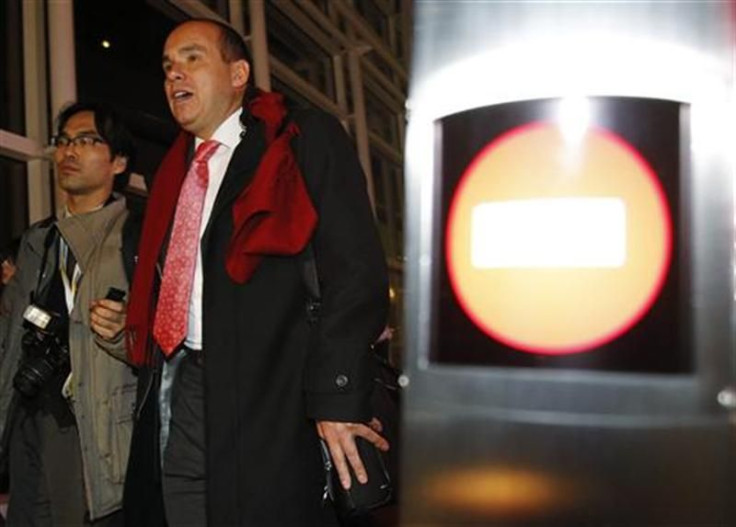Olympus Reveals $1 Billion Hit to Balance Sheet

Japan's disgraced Olympus Corp ironed out its crooked accounts on Wednesday, unwinding a 13-year fraud to reveal a $1.1 billion dent in its balance sheet and igniting speculation it would need to merge or sell assets to repair its finances.
The maker of cameras and medical equipment filed five years' worth of corrected statements, plus overdue first-half results, just hours before a deadline set by the Tokyo Stock Exchange, which would have delisted the firm if it had failed.
The most recent restatement, for end-June 2011, showed an 84 billion yen ($1.08 billion) reduction in net assets, and Olympus added that as of end-September, its net assets were just 46 billion yen, down from a restated 225 billion yen in March 2007.
It also revealed a net loss of 32.33 billion yen for the six months ended September 30, further fuelling talk that the once-venerable firm would need to take quick steps to shore up its balance sheet or risk becoming prey to a takeover.
Most probably Olympus has to increase capital. It's best for the company to merge with others rather than rebuild by itself, said Ryosuke Okazaki, chief investment officer at ITC Investment Partners.
Olympus has been dogged by rumors of bid interest from rivals, such as fellow endoscope makers Fujifilm and Hoya, or from private equity since it sacked its British chief executive and the scandal broke in October.
The stock, which has since lost about half its value to about $4.7 billion, closed down 4 percent on Wednesday.
Graphic: Revised earnings: http://r.reuters.com/pyt55s
RELIEVED, BUT NOT OUT OF THE WOODS
Some investors were at least relieved that Olympus had met the deadline to fix its accounts, without having slid into technical insolvency at any stage. Olympus also assured investors it was able to secure continued funding.
This is extremely positive for Olympus as it can avoid getting delisted after meeting the deadline to submit its earnings, Okazaki said.
Other investors, though, remained wary, noting that the exchange could still delist Olympus if it deemed the past misrepresentations of its financial health were large enough.
Although liabilities had not exceeded assets, it does not change the fact that they were window-dressing and, since the amount involved is so big and the period of time this was going on was so long, it's difficult to say what the Tokyo Stock Exchange will do, said Fujio Ando, senior managing director at Chibagin Asset Management.
I would not say that fear of delisting has disappeared.
The Tokyo exchange said after the announcements that it was keeping Olympus on its watchlist for possible delisting.
Some of the restated accounts also came with qualified opinions from auditors, with KPMG AZSA LLC noting it had been unable to confirm all the money flows involved in the fraud.
We were unable to get sufficient and appropriate proofs for auditing on specific assets and amounts, the auditor wrote.
BOARDROOM BATTLE LOOMS
Olympus triggered the crisis on October 14 when it sacked its British CEO, Michael Woodford, who immediately blew the whistle on the firm's accounting problems. Woodford is now waging a campaign to be reinstated, appealing to shareholders to support his comeback as part of a complete renewal of the board.
The board has committed to resigning over the scandal, but wants to choose its own successors before quitting, setting up the prospect of a proxy war between its own candidates and those being assembled by Woodford as part of his campaign.
The shareholding balance is such that there is a realistic chance we could win a proxy fight, Woodford said. But he added that such a battle would cause a split between foreign and Japanese shareholders and he hoped it could be avoided.
Some big foreign shareholders back Woodford's bid but Japanese institutional investors, although reticent, appear worried about whether he can win over the company's employees as well as his plans to turn around the once-proud firm.
I think it would be harmful because it would show potentially Japan institutional investors are a club, Woodford said about a possible proxy battle.
He said he was willing to meet Olympus President Shuichi Takayama at any time, but added incumbent directors were too discredited to be in a position to choose their successors.
Woodford, who was a rare foreign CEO in Japan, also sought to soothe concerns about his plans to restore trust in Olympus.
I want no part in selling Olympus or breaking it up, he said, adding he would not close down the firm's struggling camera business.
People say the 'gaijin' president would shut it, Woodford said, using the Japanese word for foreigner. I wouldn't.
($1 = 77.8450 Japanese yen)
(Additional reporting by Mari Saito, Chikafumi Hodo, Linda Sieg, Tim Kelly and Yoko Kubota; Editing by Mark Bendeich and Ian Geoghegan)
© Copyright Thomson Reuters 2024. All rights reserved.





















